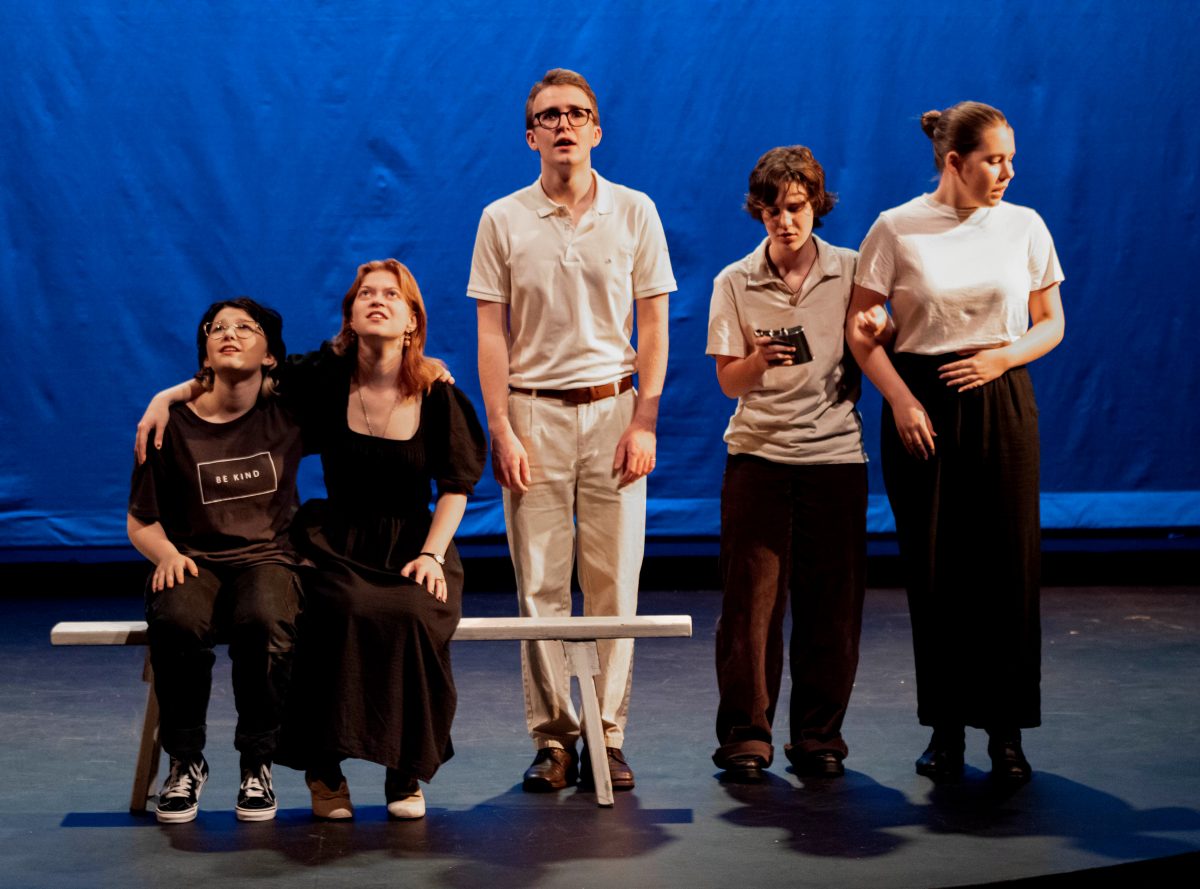Alice Bolandhemat When you think of your typical physics class, you probably imagine students taking notes on concepts they must grasp in order to receive an A on their next test. But a Latin physics class is not at all a typical one. In the final weeks of the first semester, every freshman physics class went indoor skydiving at iFly. The focus was on calculating terminal velocity, a variable the freshmen have been studying extensively this year in physics. Prior to going to iFly, freshmen learned about every component that went into the terminal velocity equation. Discovering the science behind iFly was also a large part of the field trip. The physics required to develop the wind tunnel and wind speed tied directly into the last physics unit on forces. The fans at the top of iFly’s tunnel push the wind downward and through the tunnel’s sides, compressing the air and speeding it up. Wind correlates to normal forces, another large focus of the forces unit. The amount of air and wind it takes depends on the person’s terminal velocity, which can be calculated using the terminal velocity equation. Parts of the equation were given, such as the drag coefficient (2), but students had to measure other variables themselves, such as surface area. In an interview with freshman Lily Marks, she said, “I think it’s important that not all learning takes place in the classroom. It is easier to grasp things when they are taught in a fun and active way.” The students did not only get to familiarize themselves with indoor skydiving, but they were also able to experience physics firsthand. Each student flew in the wind tunnel for a minute. In those sixty seconds, they could connect what they had absorbed in class to this unforgettable activity. Each student’s actual terminal velocity while they were in the tunnel was recorded and returned to them. They were then able to tell how accurate their calculations of terminal velocity were. Mr. Phipps, an Honors Physics teacher who helped organize the field trip, said, “After a few teachers experienced iFly for themselves during a teacher promotion, we realized how perfectly it tied in to forces, force diagrams, and even homework questions.” A lot of concepts that are taught in science are not always applicable to real world situations, but in the case of iFly, students were able to “watch and experience all that they had been learning” in a very real and tangible manner. The physics teachers are “hopeful that this activity will continue for future freshman.” Field trips are one of the only times students can acquire knowledge outside of the classroom, and this field trip was no exception. Lily Marks summed up her time at iFly as “an amazing field trip she will never forget.” The field trip allowed the entire freshman class to watch the physics they have been studying come alive. ]]>




































